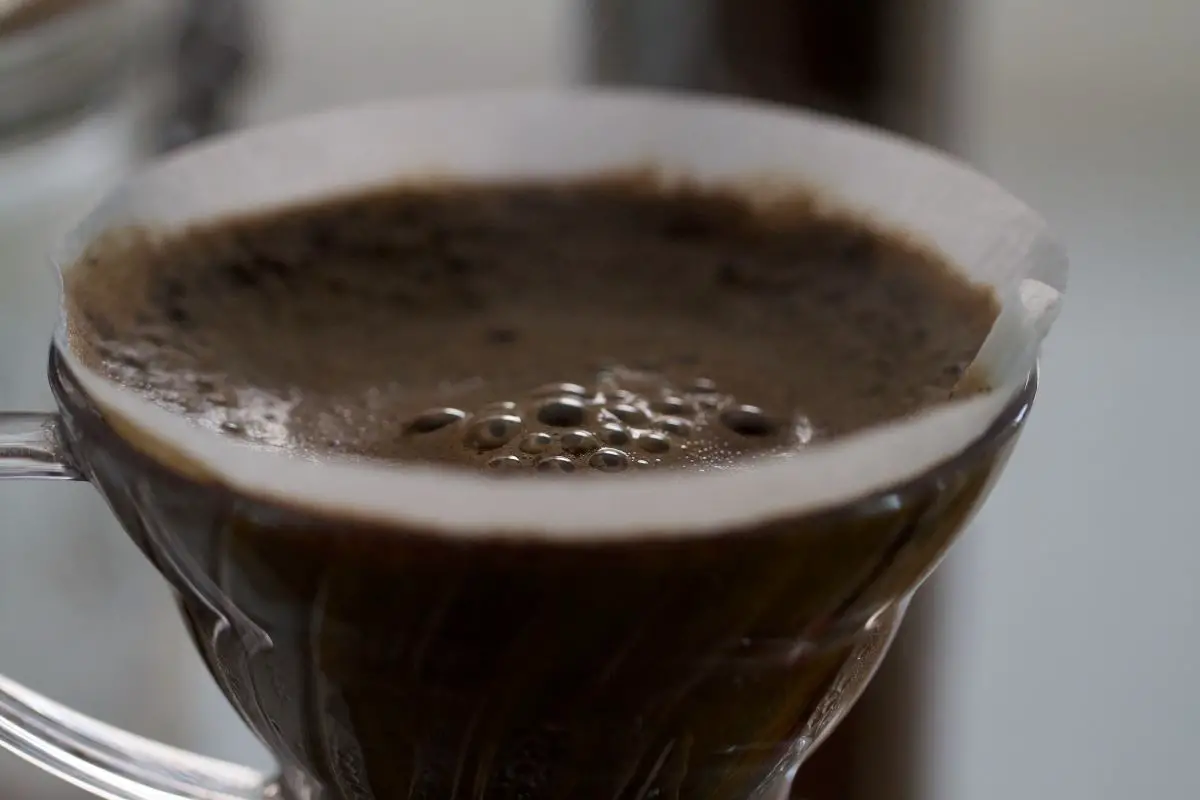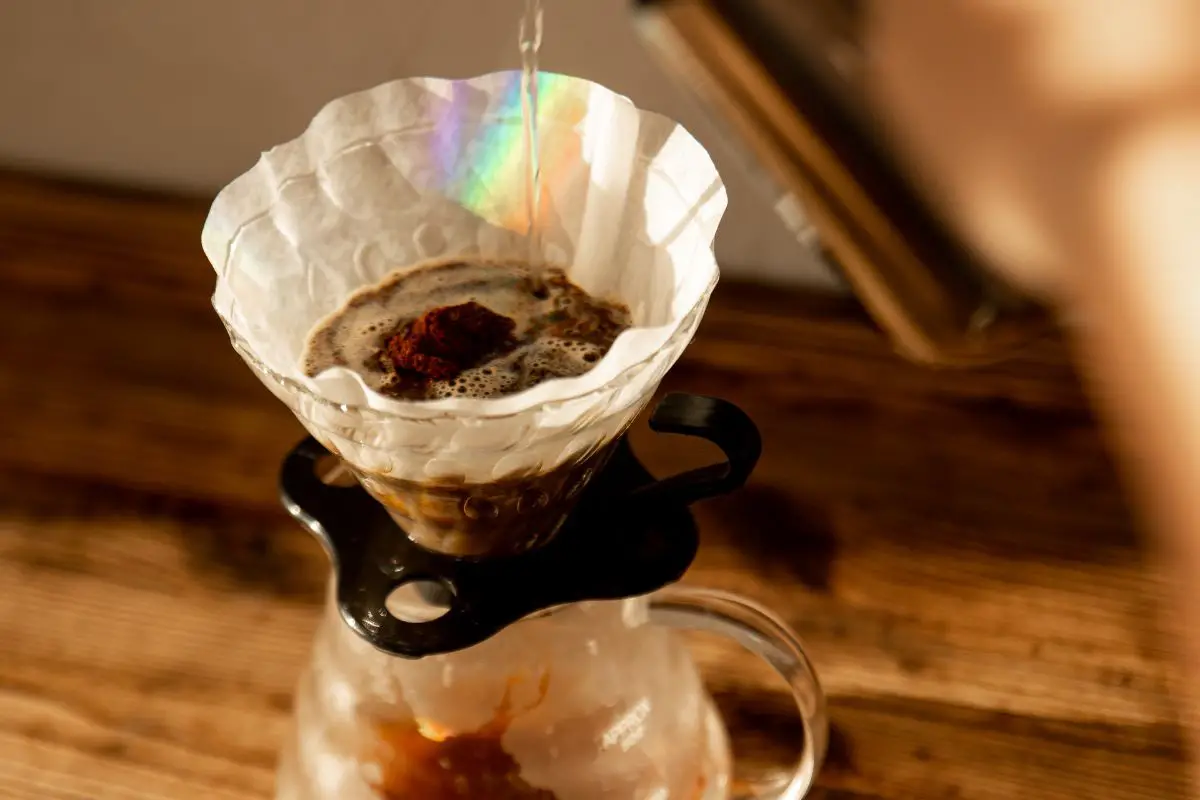Do you brew coffee from coffee grounds? If so, you may find some granules in your brew sometimes. That may cause you to wonder if coffee can completely dissolve in water.

Residue or sediments in your coffee can interfere with your coffee drinking experience. These sediments are also said to increase cholesterol in our bodies due to the chemicals found in them, such as kahweol and cafestol.
So are there coffees that are soluble in water you can take to avoid such sediments? Or is there a way of brewing coffee that completely dissolves coffee grounds in hot water? Let’s find out.
What is Coffee Solubility?
Coffee’s solubility is measured by its ability to mix in water when brewing a coffee drink.
Ground coffee cannot dissolve completely in hot water because it is only made up of 30 percent soluble solids. The rest are insoluble substances such as cellulose and oils that cannot dissolve in water.
The caffeine kick, aroma, and flavor you experience when drinking coffee comes from the soluble organic parts of coffee grounds.
The insoluble parts in coffee comprise large protein molecules, fiber, and colloids. They reduce the bitterness of coffee and give it a fresh taste.
These compounds also coat the tongue when drinking espressos and other strong brews, preventing coffee drinkers from tasting bitter flavors in a brew.
Therefore, we need the soluble and insoluble parts of coffee grounds to make an excellent brew.
And while the soluble parts of coffee grounds are low, you can improve a brew by choosing the right grind size and coffee beans to make your coffee.
For example, coarse coffee grounds cannot dissolve in hot water; you can only extract their flavor and aroma by steeping them.
But when you use fine coffee grounds, you will notice a significant part of the grounds dissolving in hot water, as you see in Espressos.
And while you may feel like steeping or simmering your coarse grounds in hot water for longer than the recommended time to dissolve more of them, don’t. That will lead to over-extraction, only giving you a bitter, dark brew.
Types of Coffee That Dissolve in Water
Only instant coffee can dissolve in water completely. That’s because it’s made in a different way from ground coffee.
We get ground coffee by grinding roasted coffee beans. But making instant coffee involves brewing coffee and dehydrating the resulting brew through freeze-drying or spray-drying.
The processes used to make instant coffee alter its composition, giving it a powder consistency that you can dissolve entirely in water.
You can use coffee grounds to prepare brews that do not require the use of superior coffee beans. If that doesn’t appeal to you, try partially dissolving ground coffee in water using the immersion coffee brewing method.
Just pour hot water over the coffee grounds and stir. Let the coffee rest for up to 8 minutes and drink it. You may also sieve your brew to get rid of lingering coffee grounds.
You can increase the solubility of ground coffee by stirring it faster and for a longer period. Using hot water at temperatures between 195 and 205 degrees will also dissolve most of the soluble parts in coffee grounds and preserve the flavor or aroma of your coffee.
Coffee grounds make better brews than instant coffee due to the acidity levels and flavor compounds. Therefore, you may prefer making a brew using them even if they do not dissolve fully in hot water.
Using Filters When Brewing Coffee

If the insolubility of coffee grounds is discouraging you from brewing coffee, why don’t you try using coffee filters? These are paper, cloth, or metal coffee brewing items that prevent sediments from getting into your coffee during brewing.
Filters are widely used in coffee-making by people who love to prepare their brews at home.
You can use filters to manually prepare coffee using a sieve. Scoop coffee grounds onto the filter, pour some hot water over them, and let the resulting brew flow into a mug or carafe underneath. That is similar to using a pour-over coffee maker.
You will make excellent coffee that way if you follow the rules of brewing coffee, such as allowing the grounds to bloom and avoiding channeling.
You can also use coffee filters on most coffee machines. Paper filters will give you a crisp, light cup of coffee with a rich mouth feel. These filters prevent even the finest coffee grounds residue from passing through.
Since paper filters absorb a bit of the oil in coffee grounds, that will reduce the flavor of your coffee. If that is a problem, choose re-usable cloth filters to use in coffee brewing. They produce light and flavourful coffee with little coffee oils.
There are also metal filters that produce rich, aromatic coffee packed with the oils in coffee grounds. They save money because they are re-usable. All you have to do is rinse out a metal filter when you are through using it. Just be advised that they may leave some residue in your coffee after brewing.
If you choose to use filters to make your coffee, avoid grinding your beans to a fine consistency. These particles will pass through most filters making their use a waste. They also do not allow any coffee ground particles through.
You may also choose to brew your coffee using machines with a built-in filter, such as French Presses and espresso machines. Another coffee brewing option you can try is using single-serve coffee containers such as k -cups.
Regardless of whichever filter you use, you’ll appreciate how coffee filters get rid of the residue that remains when coffee grounds are not fully dissolved in water.
Conclusion
Now you know the answer to “Do coffee grounds dissolve in water?” If you want to enjoy a brew that completely dissolves in water, take instant coffee or order an Espresso.
But if you want coffee grounds, you’ll have to wait until some are invented. For now, you can only reduce the insoluble in your coffee, such as fibers, by using coffee filters. Try our suggestions and see if it results in better-tasting coffee!
Related Articles